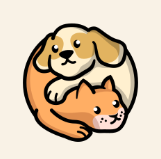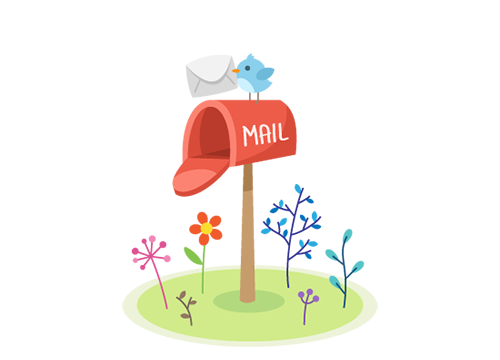You might have said to yourself: “Man, I would really like to get a pet dog or cat, but just don’t have time.” !”. I have some good news for you. You can start slowly by adopting Small Animals, or as I like to refer to them: Starter Pets! Small animals make excellent starter pets. They live in a contained space, require little maintenance and provide the satisfaction of owning a pet.
Ferrets make for a great small pet. Let’s not deny it: these guys are ADORABLE. Furry snakes that have the silliest of personalities! They are fun to be around. Ferrets make it impossible to frown around them.
We’ve already established that Ferrets make amazing pets, but what does it take to look after one of these little nuggets in the first place? What’s next?
What is exactly a ferret to begin with? Ferrets weigh between 1 to 5 lbs. and belong to the family of weasels. Their lifespan is typically between six and ten years. They are also described as being friendly, curious, social and cuddly. These slinky, peanuts like to sleep all day long – up to 18-20 hrs per day. These slinky little peanuts are great for beginners because they can sleep all day, but they still have a lot of energy at the beginning of the day and in the evening.
What do I need to adopt a Ferret?
This is definitely a enclosure! Their playful and curious nature makes them little houdinis. Ferrets need to be kept safe inside a cage. The most recommended cage setup is a wire cage consisting of multiple levels, with a solid ground and a highly secure door. Because they are not ventilated, glass enclosures pose a danger to ferrets. The cage is best placed in a quiet room where the temperature will be at a comfortable level (between 60 to 80 degrees). It is important to provide a variety of bedding for these guys, including old T-shirts or blankets, hammocks and cloth tubes. This bedding needs to be cleaned every week because these little dudes are messy. It’s also cool that ferrets have the ability to be litter trained. This is why a litter box that contains recycled newspaper or aspen shaves should be provided. Cedar and Pine shavings as well as clumping Cat Litter should be avoided, as these will irritate respiratory tracts and may be very harmful if consumed.
Food! Ferrets can be carnivores. These guys should eat ferret feed from a local pet store as it has all the necessary nutrients. Commercial ferret-specific food is rich in fats, proteins, and carbohydrates. It’s important that ferrets do not eat sugar, carbohydrates, fruits, veggies, fiber-rich foods, dairy or other high-protein food. The ferret, just as any other small animal, needs to drink fresh water each day. A water bottle should be attached to its cage.
Toys! Although these adorable creatures live in an enclosed space and are small, they still require mental and a physical stimulus. These guys are very curious. Like other animals they also explore with their teeth, often without thinking. So, the toys they use should be sturdy and “ferretsafe”, so that they do not accidentally ingest things they shouldn’t. Ferrets are supposed to have daily out-of cage time so that they can exercise their bodies and brains. Do “ferretproofing” the room is important, because ferrets like to get in cracks and crevices. And they may chew on items you’d never even consider! Most importantly, ferrets are affectionate and love spending time with their owner! To make sure they don’t miss out, give them plenty time to play with and cuddle up!
Hygiene! What’s interesting about ferrets is that they emit a musk. Many breeders surgically remove the scent glands from their ferrets to make them more adoptable. Ferrets are still able to smell like skunks, which is rare. However, they do retain a musk from the oils that naturally occur in their skin and fur. The American Ferret Association opposes any de-scenting and suggests that ferrets be brushed regularly, bathed less frequently to avoid a buildup of skin oil, have their bedding changed at least weekly, and their litter box kept clean. Although ferrets will naturally emit a small musk, you can keep their environment clean, trim their nails and clean their teeth if they permit you.
Health! As with any pet, ferrets have their own health concerns. Adopting a pet is a risky business. You don’t know what problems may occur. Be prepared! Due to their curiosity and tendency to explore using their mouths when they are young, ferrets may develop health problems such as gastric and intestinal blockages, ulcers, and other issues. Additionally, they may be at risk for diseases of their adrenal glands or pancreas. It’s crucial to visit your ferret at least every six to twelve months for regular checkups. The same as cats and dogs need regular parasite checks, flea preventions, dental care, and blood tests.
Where can you adopt a Ferret?
Great question! Washington Metropolitan Area Ferret Outreach as well as Nirvana Ridge Ferret Rescue are two of the local ferret rescues. The Animal Welfare League of Alexandria, The Animal Welfare League of Arlington, and The Humane Rescue Alliance of DC all have ferrets that are available for adoption. You can adopt these guys as a pair so that they will have a playmate to cuddle up to when you are not at home.
To find out more about ferret adoption and care, you can call your local shelter.

